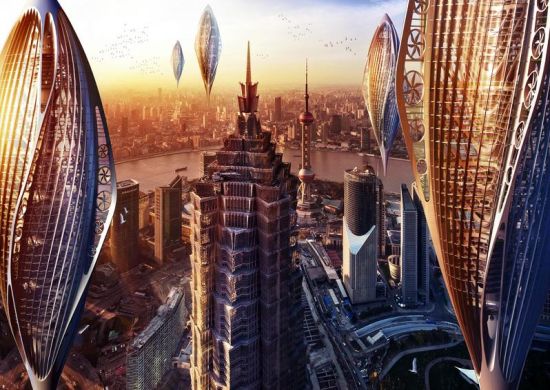
Eco Factor: Sustainable transport system designed to run on seaweed.
Renowned Belgian architecture firm Vincent Callebaut has proposed a sustainable transportation alternative that would involve zero-emission airships powered by bio-hydrogen, which is generated by seaweed. The project lines itself up for the year 2030, when fuel prices would have increased the demand for sustainable transport.

With an ability to produce electricity, without emitting any toxic gases, hydrogen promises a clean energy source for the future. Moreover, it has been discovered that sulfur micro-seaweed can produce hydrogen from carbonated waste brought by ships on the shores.
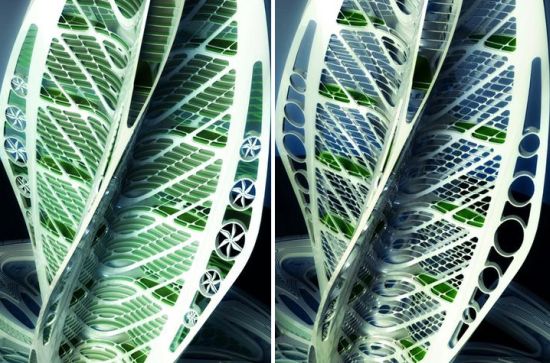
Researchers estimate a hectare of seaweeds could produce 120 times more biofuel than a hectare of soya or sunflower. Moreover, a farm with seaweeds is a true miniature biochemical power station able to absorb CO2 as main nutrient by photosynthesis and produce hydrogen in bioreactors. This is where the Hydrogenase concept steps in. The Hydrogenase is essentially a two-tier system, one of which is the airship and the other is a plant producing bio-hydrogen.
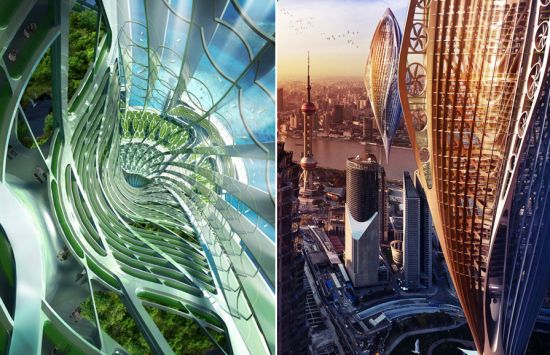
The Hydrogenase flies at an average height of 2000 meters and can carry up to 200 tons of freight at a top speed of 175kph. While the speed its double that of a ship, it is seven times slower than that of an airplane. However, since the operating cost and the reduction in emissions will definitely make it interesting in the near future.
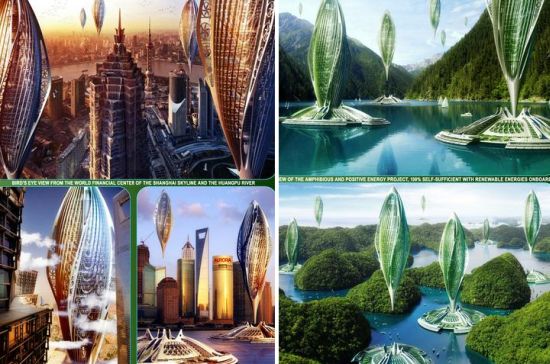
The semi-rigid airship includes four inhabited spaces, which are included between four great bubbles of bio-hydrogen. Apart from being powered by hydrogen, the ship is also equipped with a layer of flexible photovoltaic cells for more energy. On top of absorbing the solar energy, this flying castle draws its inspiration from the biomimicry technologies and is built in lighter and more resistant composite materials (fiberglass and carbon fiber) in order to reduce the weight of its structure at the maximum.
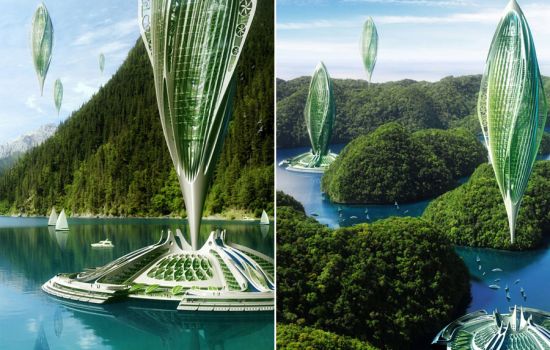
The floating organic farm is a purifying station that comprises four carbon wells in which the seaweed recycles carbonated water brought by ships. This organic farm doubles as a dock for the airship, where these ships are refueled with sustainably produced bio-hydrogen. On top of producing clean energy, this floating purifying station is also an incredible observatory for the sea fauna and flora that fight for the protection of ecosystems and for the revitalization of the beds of corals and of endangered species.

Via: Dezeen/Vincent Callebaut




